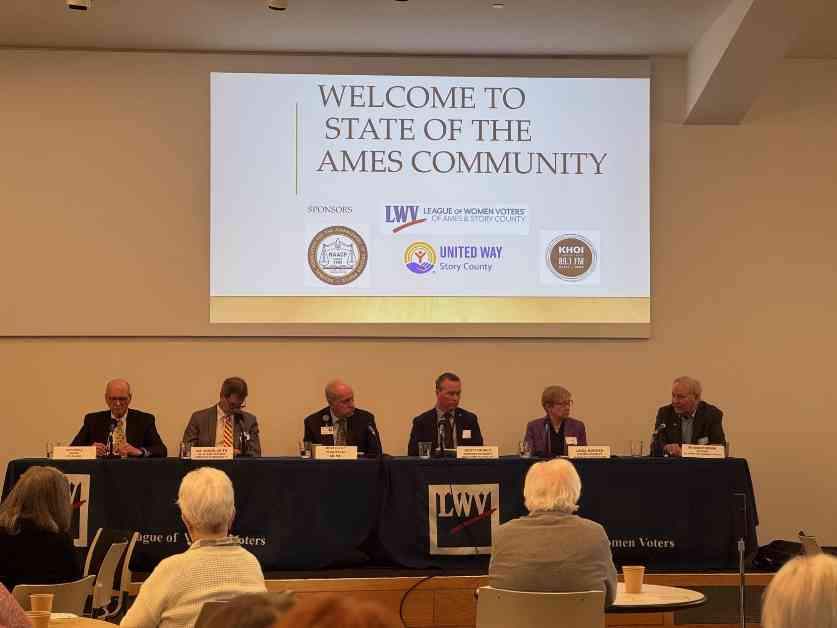Addressing Diversity, Equity, and Immigration Concerns in Ames: Local Leaders Listen at State of the Community
Local leaders in Ames recently gathered for the 2025 State of the Ames Community event, hosted by the League of Women Voters of Ames and Story County, the Ames NAACP branch, and United Way. The panel, consisting of prominent figures including the Senior Vice President and Provost of Iowa State University, Jason Keith, and the President and CEO of Des Moines Area Community College (DMACC), Robert Denson, addressed pressing questions about the upcoming year, diversity, equity, and safety for immigrants and refugees.
Concerns Over Diversity, Equity, and Inclusion
Moderated by Linda Hagedorn, who expressed the audience’s concerns about the diminishing focus on diversity, equity, and inclusion (DEI) in educational institutions, the panel faced challenging questions regarding the maintenance of DEI initiatives. Seven out of the 11 questions posed were related to DEI, reflecting the community’s heightened apprehensions.
Commitment to Diversity and Inclusion
Panelists such as Linda Murken and Robert Denson emphasized their commitment to fostering diversity without targeting specific groups, focusing instead on individual success. Ames Mayor John Haila highlighted the city’s unwavering dedication to DEI priorities despite external pressures, stressing the importance of maintaining a diverse community. The dialogue underscored the ongoing efforts to promote inclusivity and equality across various sectors in Ames.
Safety and Protection for Immigrants and Refugees
As the discussion shifted towards ensuring the safety and protection of immigrants and refugees in the community, the panelists grappled with existing policies and future challenges. Brian Dieter of Mary Greeley Medical Center emphasized the imperative of upholding laws that guarantee care for all individuals, regardless of their status. Scott Grimes, Superintendent of Ames Community School District, reiterated the significance of creating a secure environment for students and families, emphasizing the critical role of education in fostering a sense of safety and belonging.
Preparing for Future Challenges and Opportunities
Looking ahead, the panelists deliberated on strategies to navigate upcoming challenges and opportunities, particularly in light of changing governmental administrations. From addressing mental health initiatives to anticipating economic shifts, the leaders outlined their organizational priorities amidst uncertainties at the state and local levels. With a focus on resilience and adaptability, the discussions underscored the importance of proactive planning and strategic decision-making to navigate potential obstacles.
Financial Implications and Budgetary Concerns
Amidst discussions on future planning, concerns surrounding budgetary constraints and financial sustainability emerged. Leaders such as John Haila highlighted the potential impact of federal funding cuts on essential services like public transportation, underscoring the need for financial prudence and contingency planning. As the community braces for potential economic challenges, the panelists emphasized the importance of resource allocation and fiscal responsibility to ensure continued support for critical programs and services.
In conclusion, the 2025 State of the Ames Community event provided a platform for local leaders to address pressing issues related to diversity, equity, and immigration. Through candid discussions and thoughtful insights, the panelists reaffirmed their commitment to fostering an inclusive and welcoming community, highlighting the collaborative efforts needed to address complex challenges and opportunities on the horizon. As the community navigates an evolving landscape, the dialogue at the event served as a testament to the resilience and unity of the Ames community in advocating for social justice and equality.









